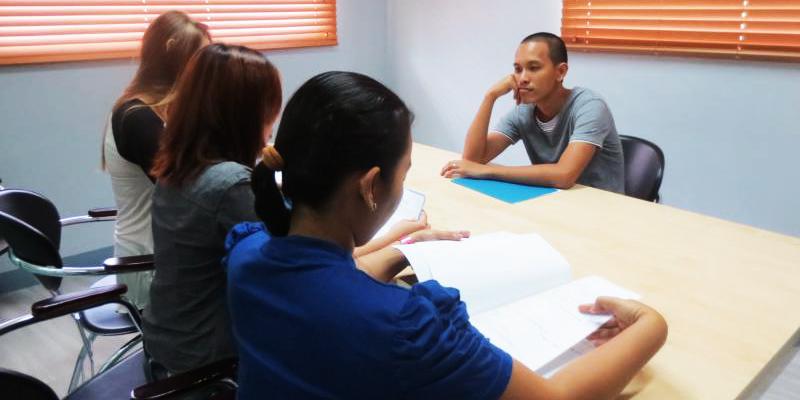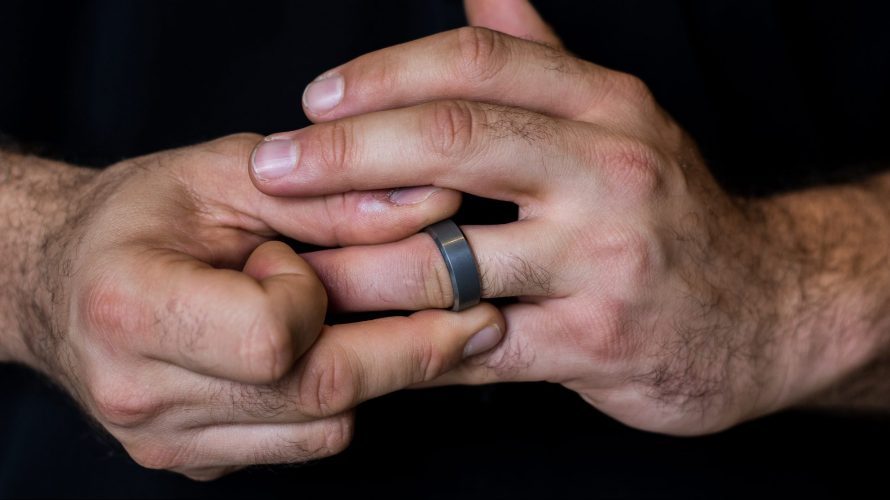An interview is a nervy, pressurised situation to find yourself in. It is your one and only chance to really sell yourself as a hireable candidate, so the need for good presentation and subsequent impressions are beyond vital. And although you can practice your responses until you’re blue in the face, one bad bit of body language can break your chances on the spot. Your body language does more to potentially say something about yourself than a dozen words can, however the innate nature of it can leave some people wondering why they might not have come across in the way they had wanted.
Below is a list of some of the worst pieces of body language that interviewers confess ruin performances and how they might be rectified to make for a more positive impression.
Navigate the article
#1 Bad Posture
Potential employers are immediately dismissing anyone who arrives into their interview and looks anything other than interested and eager for the opportunity. Arguably the worst way of destroying a good first impression is by taking a seat opposite the interviewer and either slouching back in the chair, or leaning on either side. Not only does indicate a level of disinterest/boredom, it's entirely disrespectful to someone who has given up their time to potentially present you with an employment opportunity. Correct your posture by sitting up, keeping your back and shoulders straight and facing the interviewer at all times.
#2 Eye Contact
Interviews are naturally daunting for most candidates, and the constant feeling of having someone watching you does it absolutely no favours. For some, particularly those going through their first few interviews, feeling like you have to always be matching them for eye contact makes the whole experience almost unbearable. Whilst looking away from the interviewer might be a welcome bit of relief, it makes establishing a healthy rapport between the two of you totally impossible. Building connections between colleagues is vital to an employer and losing out on that proves to be the difference between successful and unsuccessful applicants. Try to maintain as much eye contact as possible to give off the impression of being genuinely interested, whilst taking the 'breaks' by checking your notes or something beneficial to the interview.
#3 Smiling
As we said, an interview is a potentially nerve-shredding, stress-inducing experience. By letting even some of the negative emotions surrounding an interview get to them, potential applicants forget to do some of the most basic bits of body language to encourage an interviewer. An interview is, at its very core, an opportunity for you to showcase yourself as a candidate and be rewarded with a job. By carrying yourself with even something as simple as a good smile, you convey a whole level of confidence and enthusiasm that charms even the toughest of interviewers into realising your potential. It also helps establish a connection between the two of you during the interview that makes the chances of them remembering you rise drastically.
#4 Personal Space
An absolute basic in terms of creating a healthy interaction, personal space can sometimes be a tricky one to gauge. Keeping away from the interviewer when shaking hands can be received as potentially insulting, whereas taking a step forward or leaning forward over the table can be perceived as being close to confrontational. Even in a better case world, a lean forward will often distract an interviewer from what you're even saying. Overeagerness can sometimes get the better of an applicant who might think leaning forward might better demonstrate a level of interest, but trust us when we say that maintaining a comfortable degree of personal space will always yield better results.
#5 Frowning
Interviewers will usually throw in a set or two of purposefully challenging or difficult questions, mostly to inspect an applicant's ability to handle stressful or problematic situations. On top of the fact it's already a nerve-wrecking experience, it can be hard to consciously stop the frowns from spreading across your face. Any sort of negative indication you show off will severely damage the impression you had been building with the interviewer, so ensure you handle these questions calmly and competently. Take a moment and never be afraid to politely ask an interviewer to repeat or reword tricky question for you.
#6 Nodding
Another case of over-eagerness getting the best of hopeful applicants, nodding your head is a universally recognised symbol of agreement, and one that people can use far too much of in an interview process. Whilst you might think that it creates a decent rapport, showcasing that the two of you are on the same wavelength, it actually dilutes and slightly confuses the interview as to where your actual common ground is. By nodding your head more and more, it becomes harder and harder for the interviewer to truly understand what parts of what they are saying you truly agree with. In some of the worst cases, it might even be mistaken for smugness as you give off the impression that you already know everything they are saying.
#7 Fidgeting
Widely attributed with negative personality traits such as boredom or nervousness, fidgeting has proven itself to be one of the biggest impression crushing things to do in an interview. Interviewers will instantly pick up on the nervous energy things like struggling to sit still or keep your hands in one place exude, and will immediately begin labelling you with a setlist of words you don't want over you. Focus on keeping your hands in front of you and try to find the calmness needed to keep the fidgets away.
This post was created with our nice and easy submission form. Create your post!








